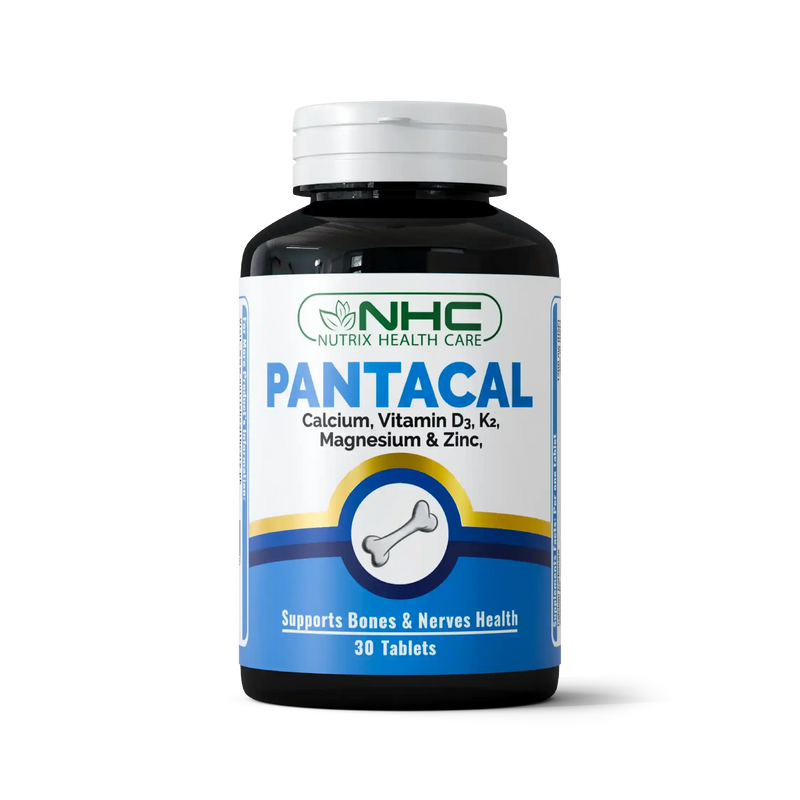Snap, Crackle, Pop: Is It Just Cold Weather or Are Your Joints Signalling Something Else?
Are your joints also making popping noises this winter? Or do your bones feel like they're crackling with every little movement?
Many people experience cracking, popping, and snapping sounds from their joints during everyday activities, such as standing up or walking up the stairs. This often raises the question: Are these sounds normal or indicative of underlying health issues?
So if your joints sound like bubble wrap this winter, it might be time to listen to what your body’s trying to say! Read this blog to learn why joints make noises, whether these noises are harmful, how to treat them, and when they may warrant concern.
Understanding Joint Sounds
There are various reasons why joints make various sounds, such as popping, grinding, snapping, and cracking. Some of the prominent reasons are:
-
Escaping Gases
The fluids, known as synovial fluids, act as lubricants for the joints to reduce friction. These fluids contain gases, such as oxygen, nitrogen, and carbon dioxide. When joints pop or crack, gases are released from the fluid in the form of bubbles. This phenomenon is generally harmless.
-
Tendons and Ligaments Movement
When joints move, tendons shift slightly out of place, resulting in a snapping sound as they return to their original position. Ligaments also tighten as the joints move resulting in cracking sound. This is particularly common in the knee and ankle areas.
-
Rough Surfaces
Rough surfaces often occur when the cartilage gradually deteriorates due to aging or injury. Cartilage helps the bones move easily against each other and when it wears away, it hinders smooth joint motion, causing cracking and popping noises.
-
Aging
As we age, cartilage in the joints begins to deteriorate, causing friction that leads to joint noises. This is usually normal and not a cause for concern unless the sounds are accompanied by pain.
Are these Sounds Harmless or a Sign of Concern?

There is generally no need for concern if you hear joint sounds like popping, cracking, and snapping. These noises are usually harmless and not indicative of serious issues. However, if you feel any pain or swelling then they may indicate underlying conditions, such as gout, joint dislocation, cartilage degeneration, arthritis, or osteoarthritis.
Symptoms that Demand Attention
These are the outlined symptoms that warrant concern for an underlying cause, such as:
- Reduced mobility
- Pain
- Swelling and inflammation
- Bruising
If these symptoms accompany joint noises, they could be linked to more serious health conditions.
Possible Underlying Health Conditions
-
Arthritis
If you hear creaking or cracking noises and experience pain then this may be a sign of arthritis, particularly osteoarthritis. Arthritis is a chronic condition that causes the breakdown of cartilage overtime, leaving bones unprotected. As the cartilage deteriorates, bones can rub against each other, leading to pain, swelling, stiffness, and decreased mobility. The creaking or cracking noises can sometimes occur as a result of this friction.
-
Bursitis
This occurs due to inflammation of the bursa, a small fluid-filled sac that cushions the bones, muscles, and tendons around your joints. When the bursa becomes injured or swollen, it causes the joints to rub together, leading to cracking, popping, and creaking sounds accompanied by pain.
-
Tendinitis
This is the inflammation of tendons, the fibrous cords that attach muscles to bones. Tendonitis commonly occurs in the knee, elbow, heels, shoulders, and wrists, causing the tendons to move abnormally, which may lead to pain, swelling, limited movement, and popping sounds in the affected area.
How Cold Weather Can Affect Joint Health?
Certain cold weather conditions can affect joint health. They can also influence the frequency and intensity of joint sounds.
-
Cold
Cartilage and synovial fluid are the two main structures that facilitate smooth joint movement. When the weather changes and the temperature drops, synovial fluid thickens, resulting in reduced lubrication and increased joint friction. Over time, this increased friction can contribute to cartilage deterioration, pain, and discomfort.
-
Biometric Pressure
When the air pressure decreases, the soft tissues around the joints expand slightly. The confined space causes increased swelling, pain, stiffness, and discomfort in certain areas, especially in joints affected with arthritis.
-
Increased Humidity
During cold weather, as the temperature drops and humidity increases, soft tissues expand, leading to more pain, discomfort, and difficulty in movement for affected individuals.
-
Reduced Blood Flow
In winter, blood vessels constrict, reducing the blood supply to the muscles and ligaments. This, in turn, causes more pain and stiffness in people with arthritis and those with chronic joint pain.
Practical Tips for Maintaining Joint Health During Winter
-
Eating Balance Diet
Incorporating foods rich in Omega-3 fatty acids, Vitamin D3, Calcium, Protein, and Magnesium helps promote strong bones and resilient jointsThese nutrients support bone density, joint function, and can help protect against degenerative bone and joint diseases such as osteoporosis and osteoarthritis.
You can include these foods in your diet:
- Banana
- Mushrooms
- Nuts and seeds
- Leafy greens
- Milk & Yogurt
- Poultry & Fish
- Eggs
- Red meat
-
Exercise Regularly

Engaging in regular exercise that strengthens the arms, legs, and muscles helps build overall body strength. Regular physical activity helps keep muscles and joints flexible, which promotes smoother, more fluid movement.
-
Keep Joints Warm
In winter, taking extra care of your joints is important. Wear warm clothes, take a hot bath, and use a heating pad to help relax the muscles and reduce pain and stiffness.
-
Use Supplements
A healthy diet and good supplements can help you manage symptoms more effectively. Calcium, Vitamin D3, Omega-3 fatty acids, and Glucosamine are key nutrients in supplements that support bone and joint health.
Improve Your Joint Health This Winter with Nutrix Health Care
In this regard, Nutrix Health Care offers supplements with incredible nutrients designed to support muscle and joint health.
-
Osti-Glu
Osti-glu is a premium-quality formula containing 3 essential nutrients: Glucosamine, Chondroitin, and Methylsulfonylmethane (MSM). These key nutrients promote joint health by improving lubrication and cartilage maintenance. Osti-Glu also helps to enhance joint flexibility and mobility.
-
Numega
Numega is a nutritional supplement formulated with 1000 mg of high-quality Fish Oil to reduce inflammation and support join health. Fish Oil has anti-inflammatory properties which can help ease joint discomfort and promote flexibility and mobility for an active lifestyle.
Conclusion
Joint noises are common and often harmless, but when accompanied by pain, they can signal underlying conditions that require attention. Therefore, it is important to address these symptoms early to prevent further complications. Maintaining joint health through a balanced diet, regular exercise, and supplements is crucial.
Nutrix Health Care's supplements Osti-Glu and Numega provide the perfect support for bone, joint, and muscle health this winter.
References
verywellhealth.com/what-causes-popping-joints-2552212
webmd.com/pain-management/knee-pain/knee-pain-weather
health.clevelandclinic.org/snap-crackle-pop-need-know-joint-noises
orlandohealth.com/content-hub/snap-crackle-pop-why-our-joints-make-noise


